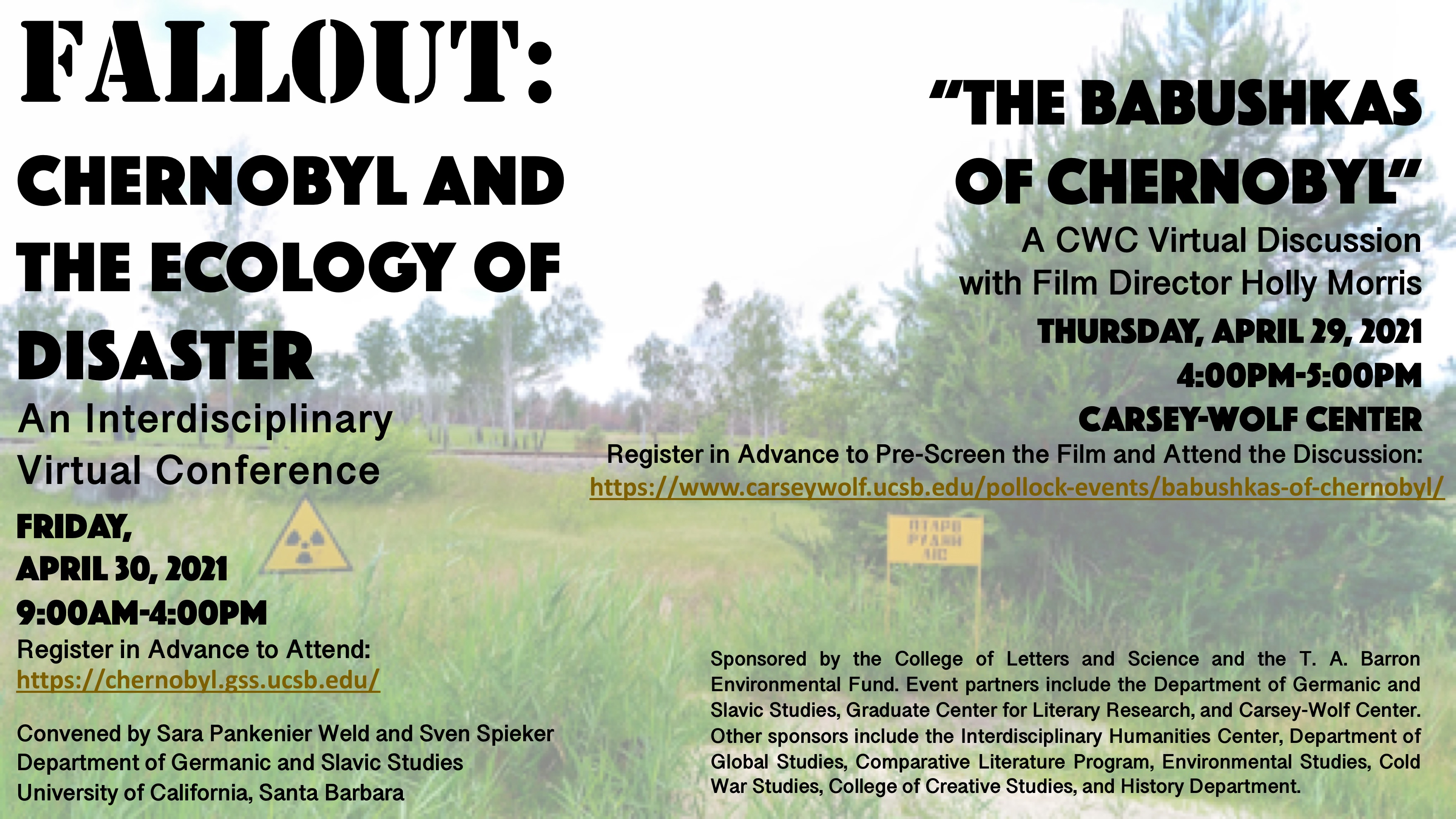Thirty-five years after the 1986 nuclear accident at Chernobyl, the interdisciplinary virtual conference Fallout: Chernobyl and the Ecology of Disaster considers its afterlife and reverberations in various disciplines, including culture and the arts. Situated at a watershed moment during the Cold War, Chernobyl has spawned an unprecedented quantity of global responses from scientists, writers, filmmakers, and artists, and it has become a key moment for the global environmental movement. This conference views the accident and its aftermath in the context of broader global ecologies of disaster and considers how catastrophe is coded and understood — or fails to be understood — through the prism of science, art, literature, and film. How do all these disciplines and discourses confront the disaster, and where do they converge to produce the fiction, or the truth, of what we call “Chernobyl”? The conference brings together scholars and experts in Comparative Literature, History, Anthropology, Environmental Studies, Nuclear Engineering, Medicine, Art, Film, and Germanic and Slavic Studies. (Rescheduled from April 2020 when it was postponed due to COVID-19.)

